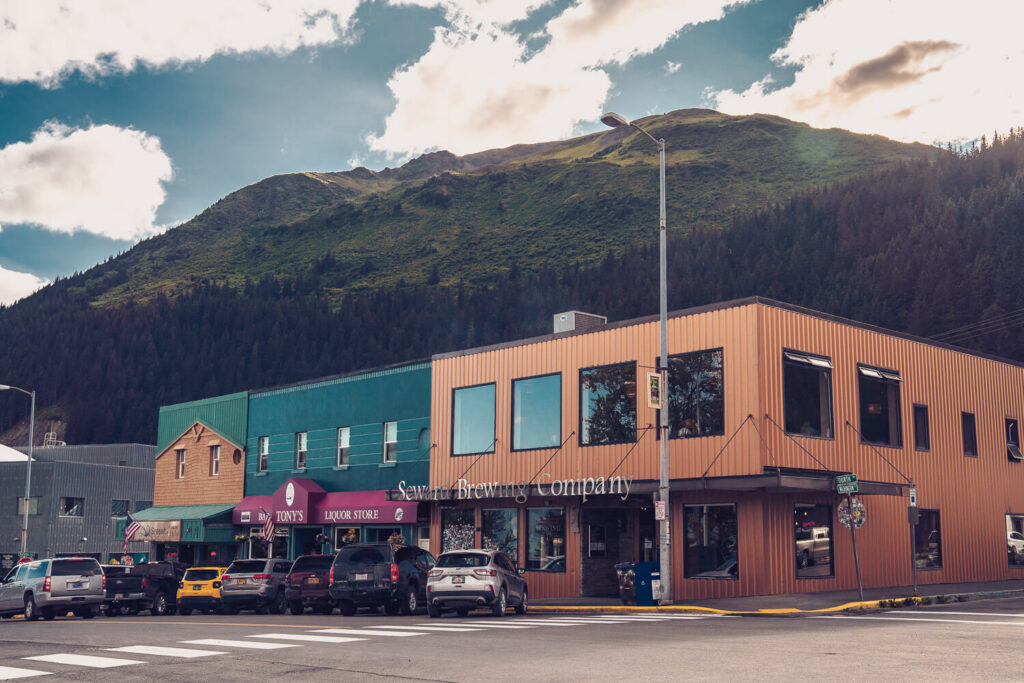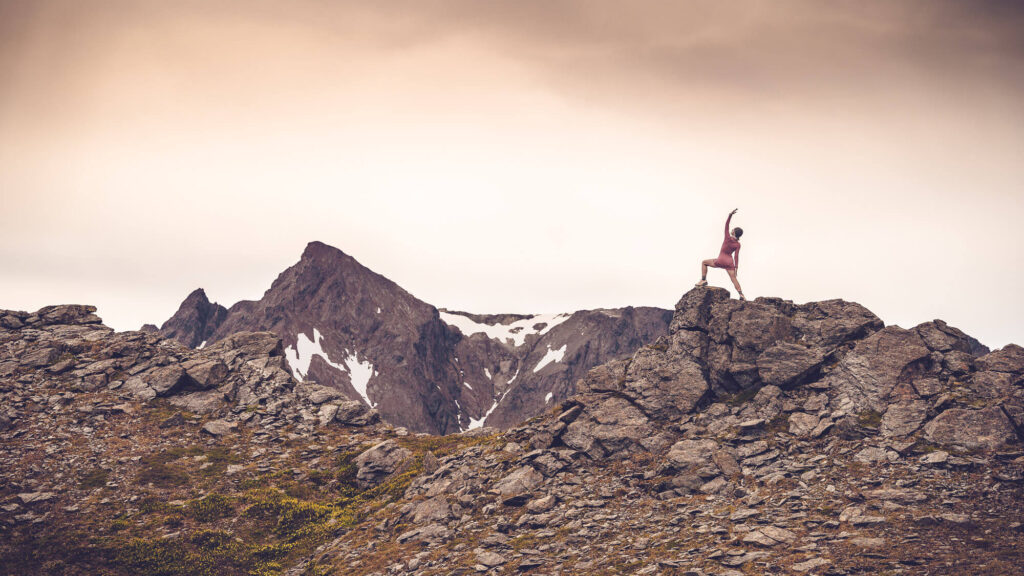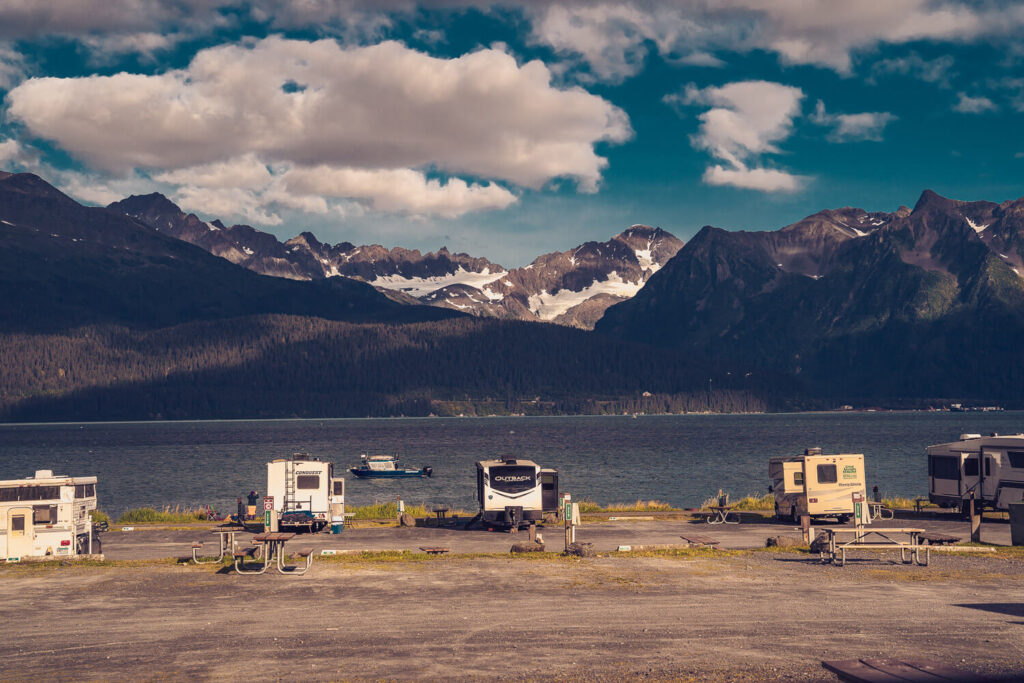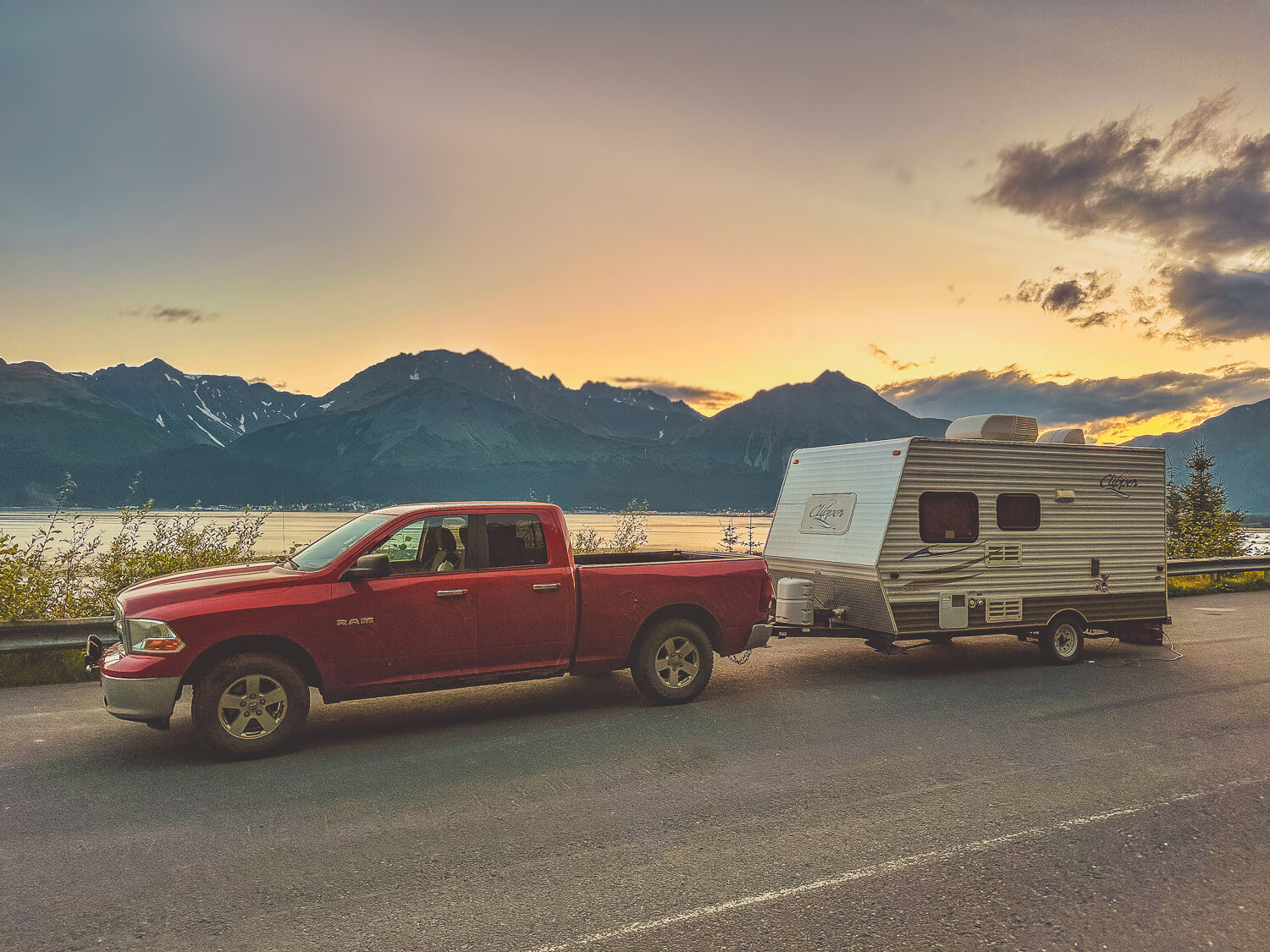So, you’ve decided to make the trip to Alaska to explore the last frontier, but you’re not sure where all to go or how to handle the logistics. There’s so much to see and do: Hiking, glacier and whale viewing tours, fishing, kayaking, flightseeing – the list of possibilities is almost endless. But it’s hard to know how much time you’ll want to spend at any given place in Alaska, or how the weather will pan out.
Have you ever gone on vacation only for it to be rainy the entire time? It’s the worst. The thing about Alaska is that it’s so big, there’s a decent chance you can just drive to another area where the weather is better and still be able to have a great adventure. The problem comes when you book a hotel or Airbnb in a certain area or areas and you’re tied to those areas at that time, regardless of weather. But it doesn’t have to be that way. So let’s get into the (mostly) pros and cons of renting an RV or travel trailer instead of booking a hotel or Airbnb.
Schedule Flexibility
As an Airbnb owner myself, I may be shooting myself in the foot a little, but I just love the freedom an RV or travel trailer offers when trying to experience a place like Alaska. When I was a kid, we spent a lot of time as a family, driving around Alaska and other states in an RV. We weren’t on any set schedule and it was great.
RV’s and travel trailers lend themselves to spontaneity. Want to spend more time in one spot than you had planned? No problem. There’s no room or house you have to check out of before you’re ready to leave. Want to leave an area early or not even go there at all? No wasted money on booked days you no longer want. Retract the stabilizer jacks and head out.
Find the good weather in Alaska
If you love the outdoors, weather plays an important role in your activities and it can make or break your outdoor adventure. When you rent an RV, you can just pull up the weather app and make plans in the moment.
Last summer, I rented a travel trailer when my girlfriend came up to visit and I could not have imagined a better set up. I was so worried about bad weather that I didn’t want to be tied to one area and get stuck with rainy days for her visit.

Spend more time in the Alaskan towns that have the right vibe
It’s hard to know which towns and cities in Alaska you’ll end up enjoying. You may get recommendations from people on the Alaska subreddit or on Facebook and go there, only to end up wondering what people see in this town (for the record, Seward is better than Homer. Fight me.). Or maybe, you just go in blind, and once you’re there, you have no idea what you’re really going to do for all of that time (I’m talking about Fairbanks. Yes, I’m trying to offend as many cities and towns in Alaska as possible.). Or maybe, you really like the vibe of one town and wish you could stay longer. Nothing is stopping you with an RV or travel trailer.

Be closer to nature (and amazing views)
When my girlfriend came up to visit, I was able to get her immersed in the Alaskan outdoors. We could wake up, open the door and have a majestic view of the mountains or step out, right into a forest. We spent a couple of nights camped out by a river in the Matsu Valley. Our hike at Pioneer Peak was just down the road. We got up in the morning, went for a long hike, drove a couple of miles back to the river and passed out.
We then moved on to the Eklutna Lake campground and stayed a couple of nights. We walked to the trail head for South Twin Peak. When we came back down, we made a campfire and had dinner at our picnic table, surrounded by trees.
The next day, we made our way to Seward. I know a great pull off on the other side of the bay from Seward, so we parked there for the night. In the morning, we opened the door and looked across the bay at the pristine mountains that were the backdrop to Seward.
The convenience and freedom an RV or travel trailer offers does have a few cons, which I’ll go over now.

Parking/camping
Alaska is pretty relaxed when it comes to parking, but you do need to be aware of how much room you need to park, especially, when it comes to trail heads. Fortunately, there’s so many pull offs nearby popular trail heads, if you can’t park at one or near one at a campground, you’re bound to find one. But you’ll want to do a little research before hand to make sure there’s a place nearby that you can park.
As for campgrounds, some of them fill up fast and you’ll want to get a reservation. Others, are pretty open and you can get a spot short notice. You’ll want to research the areas you want to visit and debate whether you want to use a campground of some sort of just park somewhere else.
Water, power, and laundry
The pro of an Airbnb is that you have unlimited water and power usage. There’s usually on-site laundry as well. You also don’t have to worry about dumping waste water and refilling. Depending on the length of your trip, this might not be an issue, but when my girlfriend and I spend a week on the road, we did laundry once at a laundry mat and had to dump/refill the water once or twice (this will depend on your usage and the size of tank on your vehicle). This means you’ll need to do a little research on finding dumping/refill stations along the way. This process may sound daunting, but having never done it before, I found it pretty easy to deal with.
Some power usage in an RV may require a generator (our travel trailer rental required a generator or shore power for the receptacles). Even if they don’t, if you plan on staying somewhere without shore power, you will need a way to recharge the batteries, but fortunately, most RV’s come with a generator. If you get a vehicle and a travel trailer, I suggest renting from someone/somewhere that offers generator rental, as some do not come equipped. I would also bring a gas can and fill it up before heading out to an area for camping. The generator we rented with the travel trailer was very efficient and we only used a few gallons for the whole week, running the generator 2-4 hours a day.
This is not a con, but may be a concern for some: If you come from a warmer climate and are worried about staying warm in an RV, don’t worry, those things heat up pretty fast. It’s a small space and isn’t difficult to get warm. My girlfriend came at the end of summer (beginning of August) and is used to warm Hawaii nights, but didn’t have a problem. We ran the heat for 10-15 minutes and were fine for the rest of the night.
Driving a large vehicle or trailer
This is only a slight con IMO. I had never pulled a travel trailer before or dealt with one, but it was pretty easy to get used to. An RV would be a similar set up, but also easier to drive. I was a little intimidated at the idea of pulling around a travel trailer and figuring out how everything worked, but I got used to it pretty fast. And Alaska has huge parking lots, so it’s super easy to find parking in whatever city or town you drive through.
So there you have it. There are some situations in which renting an Airbnb makes sense. If you’re dead set on a specific area and weather isn’t an issue, maybe an Airbnb is for you. For most people, given the size of Alaska and how viewing this state requires so much driving, I think an RV or travel trailer is the way to go. You more than likely will have to rent a vehicle anyway, so why not rent one that will allow you to take your temporary home with you? Whatever you choose, I hope you enjoy your trip. Stay tuned for more Alaska related blog posts!

LEAVE A COMMENT
Comments